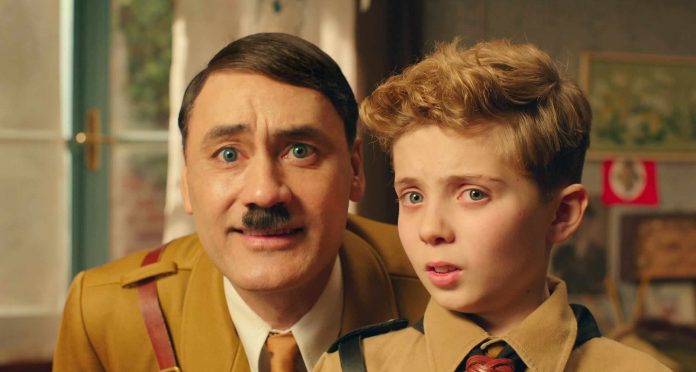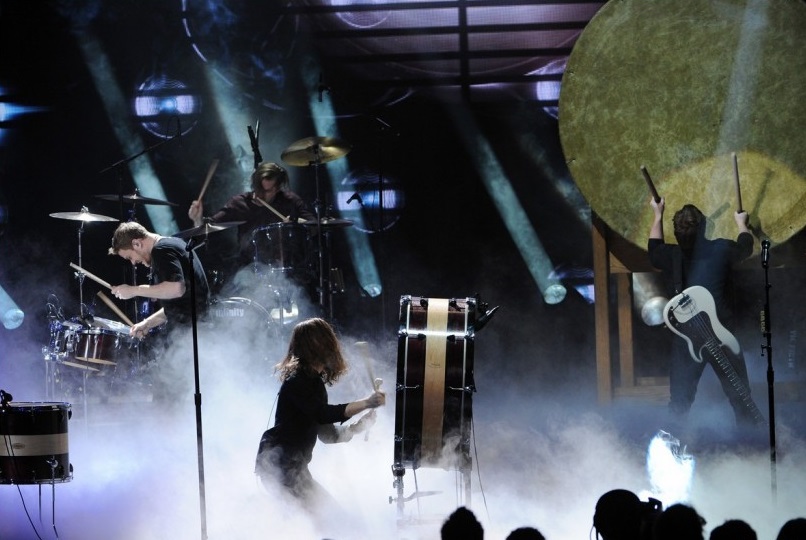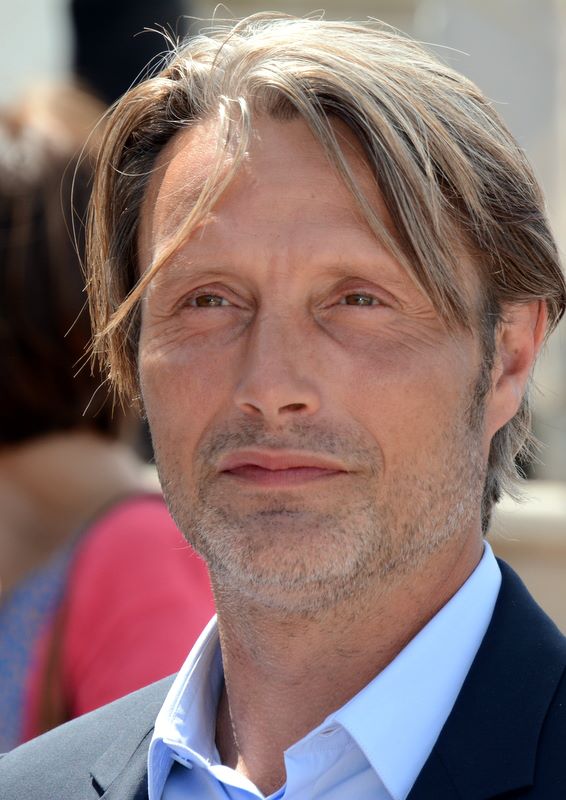Adults often have the misconception that children need to be protected from absolutely everything in the world in order to keep them as children as long as possible. However, children are much more understanding than they sometimes seem, and see different aspects of life in a very different way than we tend to. There are some things that just need to be talked about, despite the fact that children learn about them in school anyway. History lessons give them a broader understanding of the world around us and its history, past events or people who have contributed in one way or another to its creation and shaping. At the same time, however, it is not only important dates that can be learnt from history – different historical events also have ethical and social dimensions that cannot always be discussed in the classroom, but can be explored further at home.
The Holocaust refers to the mass genocide (extermination) of the Jewish people during World War II by the dictator Adolf Hitler and the Nazis he led. The tragedy that took place between 1941 and 1945 claimed the lives of around 6 million women, children and men, and no one was immune from the Nazi atrocities. The mass propaganda that was disseminated made people see the Jews as an enemy to be exterminated, thus trying to justify their unjustifiable war atrocities and the extermination of a single people without any specific objective. This is indeed a painful and dark stain on European history, the consequences of which are still felt by some people or nations today. The Holocaust during the Second World War is clearly not only a historical event, a crime against human beings and their natural rights, but it is also a good lesson in the importance of empathy, understanding and mutual aid in society, something that we must learn every day and not forget.
Here are 5 particularly sensitive films about the Holocaust to watch with your children.

5. “The Book Thief”, 2013.
“The Book Thief” is a wartime drama based on the bestselling novel of the same name by Australian author Markus Zusak.
It is a touching, intriguing story of life and death, sincere and true friendship and an endless love of books. The film follows the life of a young girl, Lise (Sophie Nelisse), during the Second World War. As Nazi Germany tore apart and destroyed the lives of countless people, Lise’s family was also affected. Her parents were deported to a concentration camp, and the one girl left behind finds solace in a strange family, taken in by Hans (Geoffrey Rush) and Rosa (Emily Watson), her new adoptive parents.
For a nine-year-old girl, her new parents are teaching her lessons of humanity in their own way. In her new home, the girl befriends the boy next door, Rudy (Nico Liersh), who becomes Lise’s best and truest friend. Liesel is a child who grows up witnessing many horrors of war, but her love of books and the stories they tell gives her hope and courage. She steals books and shares the joy of reading with a sick Jew, Max (Ben Schnetzer), who hides in a hiding place under the stairs of his adoptive home. A truly touching plot, with excellent cinematography, colours and atmosphere.
I think that the aim of the film was not to replicate the horrors of the Second World War, but it must be admitted that a sensitive and interesting film will appeal to many cinema-goers, a film that, after watching it for 131minutes, makes you want to believe in kindness and to pick up the book you have just started to read. (L. F.)

4. “Jojo Rabbit”, 2019.
This excellent film by Taika Waititi has already been called “a hipster comedy about nazism”. In fact, the director destroys all kinds of taboos in a very inventive way: he illustrates documentary footage of Nazi military parades with German renditions of “The Beatles” songs, he casts Stephen Merchant, an actor from comic TV series (“The Office”, etc.), as Gestapo interrogator Dirco, and he makes Hitler look like an immature imbecile with no great mind. In fact, he is not the real dictator Adolf Hitler at all, but only a playmate of Johannes Betzler (Roman Griffin Davis), a ten-year-old who exists only in the boy’s imagination. It is to him that the boy swears allegiance in the first scene of the film, having exemplarily mastered that his “mind must be like a snake’s, his body like a wolf’s, his courage like a panther’s, and his soul like that of a real German”.
To prevent her son from being lonely, Rouze (Scarlett Johansson), a single mother living in Nazi Germany, enrols the boy in the Hitler Youth, led by the eccentric Captain Klencendorf (Sam Rockwell is no stranger to playing all sorts of “crazy” characters). He likes his new organisation, so Joe diligently learns the soldier’s trade, still hoping to make it to the front, even though he doesn’t know that the war is inexorably coming to an end. Jojo tries to comply with the strict Nazi code, which includes hating Jews. The boy does not think about the true meaning of this “norm” until he discovers a Jewish girl hiding in the attic of his own home. The scenes in the children’s camp, with their fantasy and bizarre characters, are somewhat reminiscent of Wes Anderson’s Moonrise Kingdom, with its caring counsellors, beautiful scout uniforms, order and discipline, and useful lessons.
It is only in the summer camp that the Hitler Youth “scouts” learn to throw grenades, listen to lectures on the superiority of the German race over others, draw caricatures of Jews on the blackboard during drawing lessons, burn books in bonfires in the evenings, and morally prepare themselves to kill their enemies, although the first serious task – to snap the neck of a rabbit – is shamefully impossible for Djodjie. Nearly seven years in the making and in development, the comedy “Jojo rabbit” is sure to become a cinematic classic, inheriting from its predecessors the unconventional approaches to the problem of Nazism, and presenting a strange cocktail of paradoxical humour and serious ideas with a mix of ingredients, freely manipulating the aesthetics of shock (the gruesome episode with the butterfly and the gallows), the paradoxes of the absurd, the intonations of humour as deadly as a gun, the tragicomic moods, and even the elements of a musical. (G. J.)

4. “The Boy in the Striped Pajamas”, 2008.
Based on the novel by Irish writer John Boyne, the war drama The Boy in the Striped Pyjamas was hailed by some critics after its premiere as one of the best childhood stories in cinema.
If so, the world of the eight-year-old boy depicted in the film would not be called a happy childhood. For the film’s protagonist, Bruno, is the son of a Nazi officer (David Thewlis). The curious and gentle boy’s world is turned upside down when his father is promoted and sent from the Berlin Chancellery to run one of the death camps.
Asa Butterfield, a young actor with big expressive eyes, made his film debut in this film, but he did not remain a one-movie hero, as often happens to children who do well in the cinema, who soon grow up and lose their naturalness and charm, and whose careers often end quickly once they have started.
Growing up, Asa was lucky enough to star in films from different genres, such as Martin Scorsese’s “The Invention of Hugo” (2011), one of the protagonists of this film is Georges Melies, the pioneer of fantasy cinema played by Ben Kingsley), the fantastic adventure film “Ender’s Game” (2013), the beautiful magical fairy tale Miss Peregrine’s Home for Peculiar Children (2016), or the British comedy “Greed” (2019) by the British director Michael Winterbottom, which raises serious social issues.
At first, Bruno finds his parents’ relationship chilling, wonders why he is not allowed to visit the barbed wire fence, and befriends what he perceives to be a strange-looking Jewish boy, Shmule (Jack Scanlon). But gradually, as each new detail is revealed, the viewer is plunged into an atmosphere of tension, lies, mistrust, fear and horror.
Watching “The Boy in the Striped Pajamas”, the memory of the three Oscar-winning film “La vita è bella” (1997, dir. Roberto Benigni) comes to mind. The main events of this film are also set in a Nazi concentration camp, where a caring father (played by the director himself) wants to protect his young son as much as possible from the harsh reality of the “death factory”.
Not wanting to shock the little one, Guido assures his offspring that everything around them is just a fun game, where the rules are strictly followed: no crying, no asking for food, and obeying all commands. The winner is the one with the most points. He or she will be awarded a prize in the final – a real American tank.
Bruno and Shmule, like all children of their age, want to play. But it’s hard to do so with barbed wire separating the two and armed automatons watching from towers.
Both boys live in a constant atmosphere of lies. From Shmule’s parents, they hide the real cause of his grandparents’ death in the gas chamber (they tell the child that they died in the concentration camp, having contracted an infection on the way). Bruno is lied to by his father, who talks about the important state mission he has been entrusted with (in reality, the mission is to make propaganda films about how prisoners’ life behind barbed wire is a real paradise).
But children’s worldview is at odds with the rationality of the adult world. Children do not imagine the world as it is, but as it SHOULD BE. (G.J.)

2. “White Bird”, 2024.
It is a new American film based on the graphic novel of the same name by R.J. Palacio, published in 2019. “White Bird” (dir. Marc Forster) can be seen as both a prequel and a sequel to “Wonder” (2017) (dir. Stephen Chbosky), because while the beginning of the film slightly extends the storyline of the previous film, the main plot of White Bird is set in the past, and can be seen as a stand-alone film.
After the events seen in “Wonder”, Julian (Bryce Gheisar) struggles to fit in at his old school after being expelled for his behaviour towards a boy named Oggy. To change his life and ease the difficult process of adaptation, Julian’s grandmother Sarah (Helen Mirren) finally reveals to her grandson her own personal story of courage and strength: as a young girl in Nazi-occupied France, a boy sheltered her from mortal danger. In a dangerous world, they found love in a stunning and magical world of their own making, and the boy’s mother (Gillian Anderson) risked everything to keep Sarah safe.
It mixes the themes of teenage love and the Holocaust, as well as emphasising the themes of kindness, courage and the lasting impact of one act of mercy. Like the story of “Wonder” before it, this is an uplifting drama about how one act of kindness and humanity can live forever.
The film received mixed reviews, but was praised for its sincere storytelling and strong performances by the cast. Some critics pointed out sentimental moments in the film, but were generally positive about the film’s ability to convey the seriousness of the historical context without underplaying it.

1. “One Life”, 2023.
“One Life”, directed by James Hawes, is a biographical drama that tells the inspiring true story of Sir Nicholas Winton, a British stockbroker who saved 669 mostly Jewish children from Nazi-occupied Czechoslovakia on the eve of the Second World War. The film intertwines two timelines: one with actor Anthony Hopkins playing the old Winton reflecting on his past, and the other with actor Johnny Flynn playing him as a young man actively involved in the rescue mission. Sir Nicholas’s role in the rescue operation involved overcoming bureaucratic hurdles and fundraising to ensure that the rescued children had a safe journey and a foster home awaiting them. His dedication and resourcefulness, with the help of a persuasive mother and a diverse network of friends, underlines the extraordinary impact of his humanitarian work.
The film has been highly praised for its sincere portrayal of Sir Winton’s mission and the moral difficulties he had to face, as well as for actor Anthony Hopkins’ masterful portrayal of the weight of his character’s reflections and the deep sense of loss for every child who could not be saved. The film also explores Nicholas’s post-war life, where he was reluctant to reveal his story, but this later led to a moving television encounter with the now grown-up children he managed to save. Despite some criticism for its sentimental approach and less than compelling flashback scenes, One Life has been acclaimed for its powerful message about the impact one person can make in the face of overwhelming odds.




